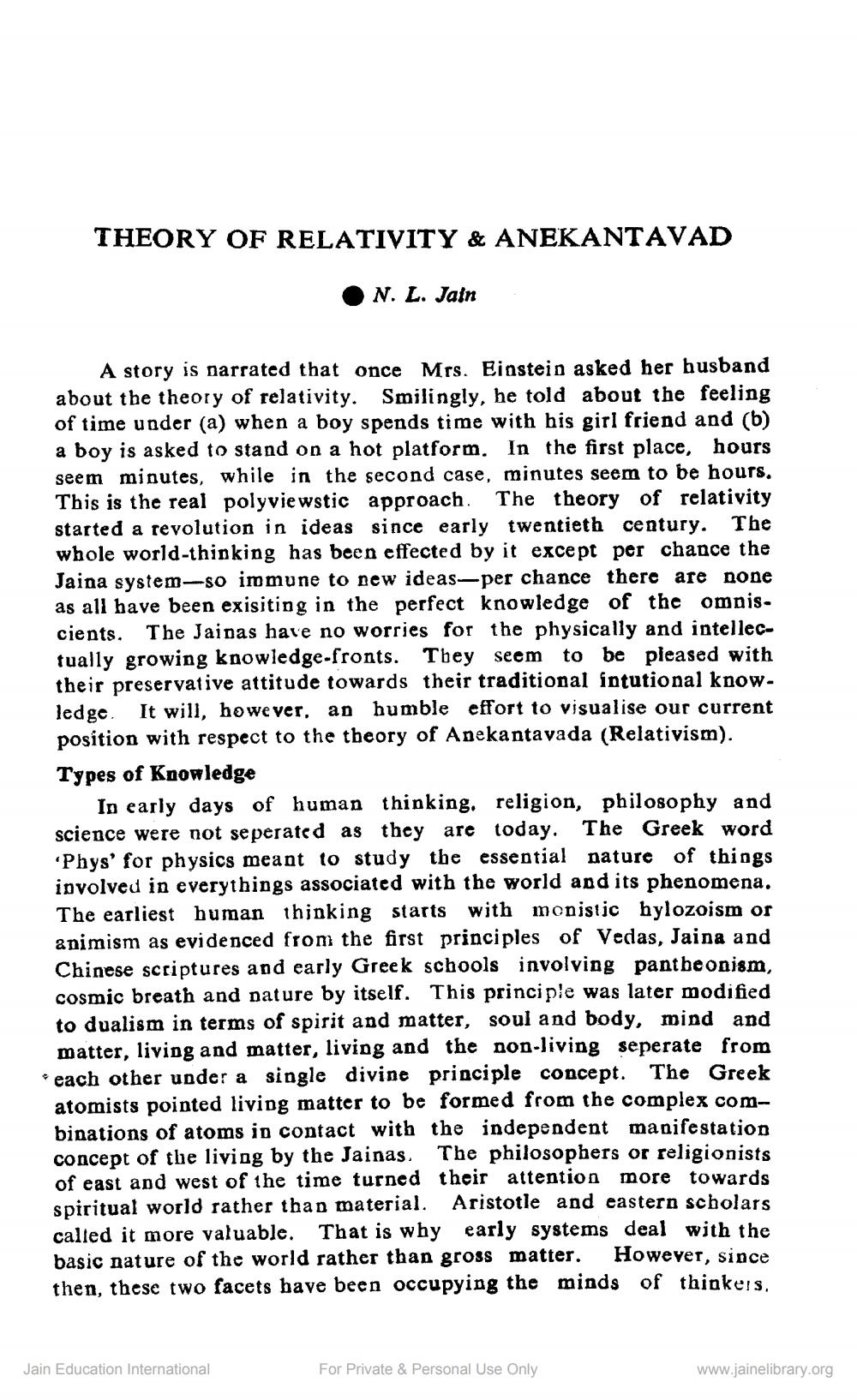________________
THEORY OF RELATIVITY & ANEKANTAVAD
N. L. Jain
A story is narrated that once Mrs. Einstein asked her husband about the theory of relativity. Smilingly, he told about the feeling of time under (a) when a boy spends time with his girl friend and (b) a boy is asked to stand on a hot platform. In the first place, hours seem minutes, while in the second case, minutes seem to be hours. This is the real polyviewstic approach. The theory of relativity started a revolution in ideas since early twentieth century. The whole world-thinking has been effected by it except per chance the Jaina system-so immune to new ideas-per chance there are none as all have been exisiting in the perfect knowledge of the omnis. cients. The Jaipas have no worries for the physically and intellectually growing knowledge-fronts. They seem to be pleased with their preservative attitude towards their traditional intutional know. ledge. It will, however, an humble effort to visualise our current position with respect to the theory of Anekantavada (Relativism). Types of Knowledge
In early days of human thinking. religion, philosophy and science were not seperated as they are today. The Greek word Phys' for physics meant to study the essential nature of things involved in everythings associated with the world and its phenomena. The earliest human thinking starts with monistic hylozoism or animism as evidenced from the first principles of Vedas, Jaipa and Chinese scriptures and early Greek schools involving pantbeonism cosmic breath and nature by itself. This principle was later to dualism in terms of spirit and matter, soul and body, mind matter, living and matter, living and the non-living seperate fr each other under a single divine principle concept. The Greek atomists pointed living matter to be formed from the complex combinations of atoms in contact with the independent manifestation concept of the living by the Jainas. The philosophers or religionists of east and west of the time turned their attention more towards spiritual world rather than material. Aristotle and eastern scholars called it more valuable. That is why early systems deal with the basic nature of the world rather than gross matter. However, since then, these two facets have been occupying the minds of thinkers,
Jain Education International
For Private & Personal Use Only
www.jainelibrary.org




